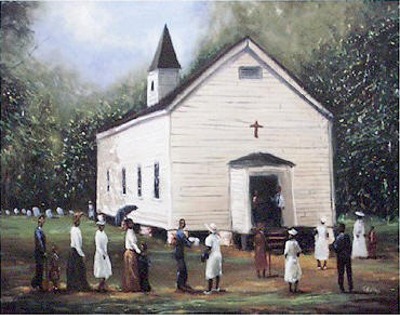I'll answer some questions about the chapters I already mentioned, so the understanding of the novel is better.
 Chapter 12
Chapter 12
1. Comment on Jem's and Scout's visit to First Purchase Church. What does Scout learn about how black people live?
They were much more poor than the whites; also, most of the didn't know how to read or write. And finally, they spoke English with a quite strange accent, mixing it with what was probably another dialect.
2. Explain why Calpurnia speaks differently in the Finch household, and among her neighbours at church.
Because most of them didn't speak English as well as she did, and might feel offended if Calpurnia spoke "white" English.
Chapter 13
3. Aunt Alexandra thinks Scout is "dull" (not clever). Why does she think this, and is she right?
Because she doesn't know how society is. She curses, fights and dress like a man.
4. How does Aunt Alexandra involve herself in Macomb's social life?
She likes to meet new people, inviting them to Atticus' house. Her real purpose, reflected in what she does, is to convert Scout into a lady.
5. Comment on Aunt Alexandra's ideas about breeding and family, in contrast to Atticus' visions. Who's right, do you think? Why?
 Alexandra wants to mantain the family's traditions. For that, she needs Scout to be a lady. In the other hand, Atticus doesn't care much about tradition. In my perspective, Atticus is right, because he promotes freedom for his little girl.
Alexandra wants to mantain the family's traditions. For that, she needs Scout to be a lady. In the other hand, Atticus doesn't care much about tradition. In my perspective, Atticus is right, because he promotes freedom for his little girl.
Chapter 14.
6. Comment on Atticus' definition of rape. How suitable is this definition as an answer to Scout?
He doesn't tell what it is, but he does tell her that it's something that shouldn't happen, because it's bad. She is too young to understand it. My point of view is to never hide something from a child, because they understand much more than we think.
My experience about meeting new cultures isn't too wide. But as you know, this year I went to New Zealand, in an exchange with the Scots College of Wellington. The English they spoke was quite similar with the one I know, but with some exceptions. For example, in the words 'seven' and 'ten', the 'e' sounded more like in 'teen'. Also, the food they ate, because they were Indian, was quite spicy, and we ate it with the hands only. This isn't something I usually do, just like Scout and Jem don't usually go to black's churches. But, at least for me, it was a great experience, because I could live three weeks with another culture. I hope I can go back soon.











